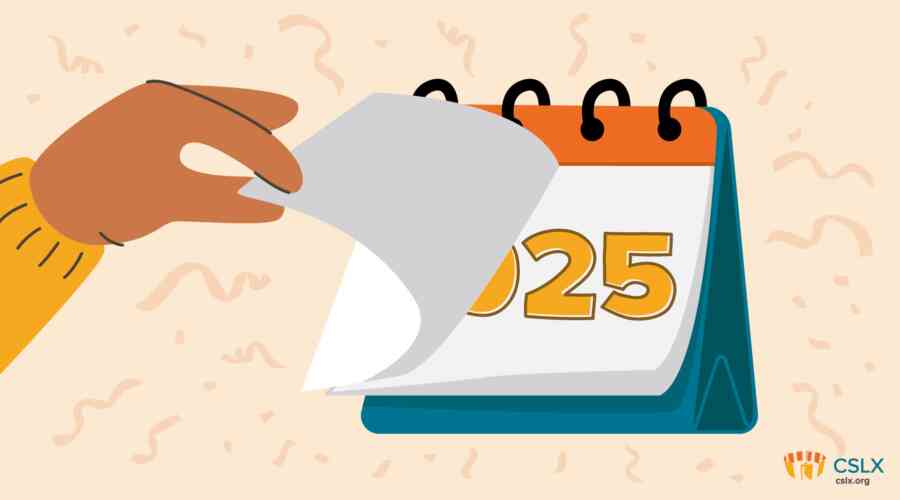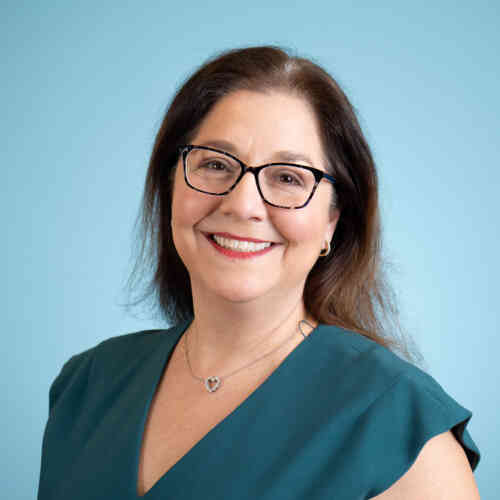Post-holiday reset: How community school teams can build on their wins and plan for impact


Coming back after the holidays is an opportunity for community school teams to recharge, refocus, and set the tone for the remainder of the school year. As you get back into the swing of things, now's the time to reflect on where you’ve been–and where you want to go. Need help getting started? We’ve outlined a couple of questions for you and your teams to consider below.
First, reflect on what went well. Document and celebrate what ideas worked, what new skills you and your teams gained, who you connected with and the ways you built community. Think about how you want to build on these wins over the course of the rest of the year.
Did you start the school year off mapping out an arc of the year? If so, see if what you planned for the coming months still holds, and make adjustments as necessary. Didn’t map out your work that way in September? No time like the present! Set goals for your work between now and June and map backwards, month by month. Chart what steps you need to take, who you need to loop into your work, and when. Make an action plan!
At CSLX, we believe that we are all teachers, and we are all learners. Consider adding different capacity building opportunities to your arc of the (rest of) the year. The Coalition for Community Schools’ CSxFE conference is at the end of May, and the STAC Summit is June 12-13. CSLX has workshops planned throughout winter and spring to help you develop your skills around various aspects of community school development, from building transformative family engagement to a series for leaders looking at the roles of CSCs and principals, with a site visit thrown in for good measure (just make sure to sign up for emails so you’re kept in the loop).
Your County Office of Education and RTAC will also have different learning opportunities on their calendars. You’ll have lots of chances to build your skills and bring the learning back to your teams, or bring your teams to the events! Be thoughtful about which ones you choose – think about the skills you want to build, and the ways you want your work to grow.
And… What do you want to teach? CSLX Community School Coach, Cristina Patricio, likes to say that a big role that Community School Coordinators (CSC) play is to build teams, lead teams, and help teams build the capacities to lead their work themselves. What kinds of capacities do you want to build within the teams you’re working with? You could look at building out more collaborative leadership practices in your advisory council or leadership team meetings. You could also look at ways to support school staff members to continue to build trust with other interest holders. And what about data? If you spent time this last fall gathering data–whether it was street-level data like surveys and empathy interviews or taking a closer look at and asking questions of existing map or satellite level data–you might think about taking time to teach your other interest holders about interacting with and using data, too.
All of the things you accomplished and learned over the course of the fall tell a story. Think about how you want to pull that story together and share it. What are the most important things you want people to know about your community school (CS) development so far this year? How do you want to tell this story? Sharing the work you’ve done so far is a great way to celebrate accomplishments and engage new interest holders. If you don’t currently have a structure or strategy in place for communicating out with interest holders, the new year offers an opportunity to start something. Maybe you ask for a regular time on different teams’ meeting agendas. Do a newsletter, or ask for space in the communications that come from the principal or other school teams. However you decide to get the word out, sharing your community school work is a great way to engage a wider range of interest holders and to get people thinking about the ways they can help lead community school (CS) development work, too.
Want more tips? Check out the CSLX blog and sign up for emails so you never miss an update.

Melissa Mitchell is Director of Resource Development at the Community Schools Learning Exchange (CSLX). She brings over 15 years of experience supporting community school development, from providing coaching and direct technical assistance to schools, districts, practitioners and community partners, to working with legislators and policymakers to develop supportive-state level policies that advanced community school development across Illinois. Get in touch with Melissa via email at melissa@cslx.org.